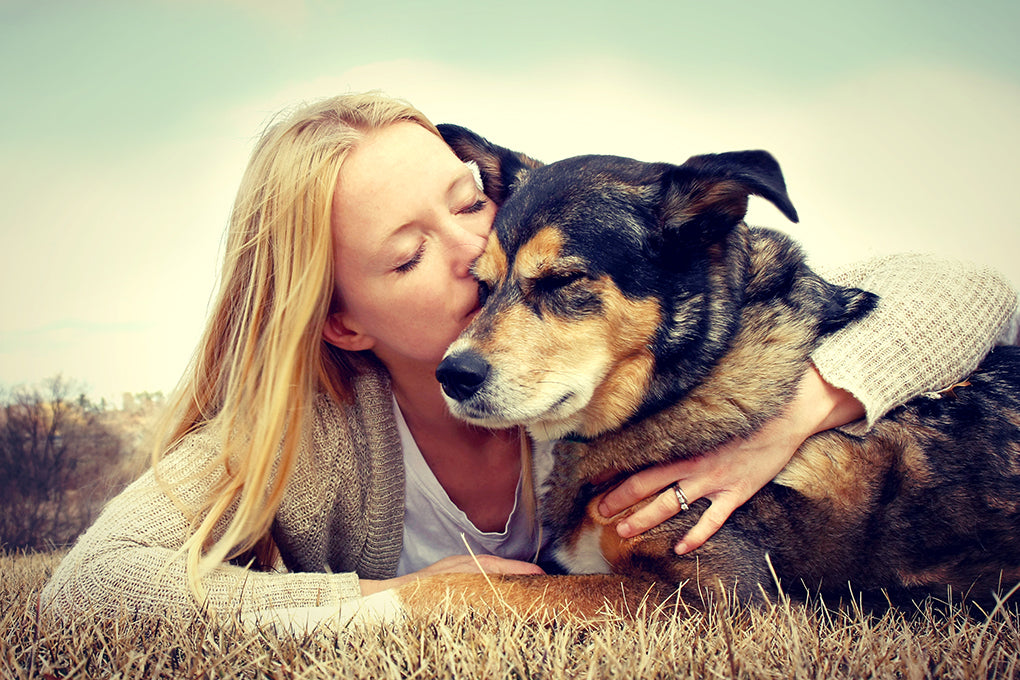
Bladder Cancer in Dogs: Causes, Symptoms, and Support
We love our family, and for many people, their dogs aren't just pets—they're part of the family! If you've noticed your pet is sick , it's understandably a cause for concern. This can be a devastating reality, especially if they've been diagnosed with cancer.
- Click to learn more: 👉 Support your dog fighting CANCER with our Natural Product 🐶
Although bladder cancer is rare in dogs, it's a problem faced by thousands of owners. As such, you may be wondering how it occurs, how often it affects dogs, how you can identify it, and what steps you should take to treat your dog.
In this article, we will examine the answers to these questions. Our goal is to make you feel better equipped and more confident to handle such a difficult situation.
Please see our Complete Guide to Cancer in Dogs to learn more about the different cancers affecting dogs.
How common is bladder cancer in dogs?
As mentioned, bladder cancer is rare in dogs. In fact, it only accounts for about 2% of all cancers in dogs. Invasive transitional cell carcinoma (also known as TCC or urothelial carcinoma) is the most common cancer affecting the bladder.
Interestingly, although TCC can occur in any breed, this cancer primarily affects specific breeds such as Terriers and Beagles. Bladder cancer also tends to affect middle-aged or older female dogs at higher rates.
Although there are less aggressive forms of bladder cancer, dogs unfortunately rarely get this less aggressive (or lower grade) form, meaning that this cancer, if diagnosed, is much more deadly.
What causes bladder cancer in dogs?
Because this cancer appears to affect certain breeds more commonly, researchers believe these dogs may have a genetic predisposition, which increases their risk.
However, there are no clear answers yet as to what may cause it. Some studies have shown that there may be a correlation between bladder cancer and exposure to petrochemicals and pesticides .
Obesity has also been linked to bladder cancer in dogs.
Signs of Bladder Cancer in Dogs
What are the symptoms of bladder cancer in dogs? This is where things get complicated. Often, the symptoms of bladder cancer are similar to those associated with a urinary tract infection (UTI), such as painful or frequent urination.
Here are some symptoms of bladder cancer to watch for:
- Frequent need to urinate
- Painful or difficult urination
- Bloody urine
- Incontinence (lack of control over urination)
- Excessive licking, redness or swelling of the genitals
- Loss of appetite
Although initially bladder cancer may present with symptoms similar to a urinary tract infection, after taking antibiotics, symptoms will continue to recur and worsen.
Bladder Cancer in Dogs: Stages
Ideally, the goal is to identify cancer before it can metastasize or spread to other parts of the body. As mentioned earlier, there are a few key signs to look out for in the early stages. These symptoms evolve as the disease progresses to the more advanced and critical stages.
Advanced stages of bladder cancer in dogs:
- Vomiting
- Decreased desire to exercise
- Weight loss
- Difficulty sitting and walking
Critical stages of bladder cancer in dogs:
- Difficulty breathing or loss of balance
- Uncontrollable vomiting/diarrhea
- Bleeding
- Crying/moaning due to pain
Bladder Cancer in Dogs: Life Expectancy
Unfortunately, bladder cancer in dogs tends to be aggressive, with a poor long-term prognosis. In fact, 20 to 30% of dogs with bladder cancer have tumors that metastasize to other parts of the body, such as the lungs.
If your pet is diagnosed with bladder cancer, they may have between 4 and 12 months to live, depending on the severity of the cancer and the care provided.
Can bladder cancer in dogs be treated naturally?
Although bladder cancer can be easy to diagnose, when you have a definitive diagnosis, it's only natural to want to do whatever you can to help.
Your dog is part of your family and you want him to have the best possible treatment. At HomeoAnimo ™ , we share these same feelings and are invested in researching natural cures.
This is why PIPTOANIMO was designed; it is a broad-spectrum antiviral and antibiotic treatment that helps strengthen your dog's immune system and maintain good health.
With anti-inflammatory and anti-tumor properties , it promotes the production of healthy cells.
I hope you found the information in this article helpful in supporting your companion!




















2 comments
Bonjour Madame Billon-Lanfray, merci d’avoir contacté HomeoAnimo ! Nous venons de vous envoyer un email avec nos réponses. Nous espérons avoir de vos nouvelles bientôt au sujet de la santé de Mouflette. Passez une bonne journée !
HomeoAnimo
Bonjour, oui ma chienne fox terrier de 13 ans, Mouflette a été diagnostiquée comme ayant un cancer de la vessie inopérable car très mal placé. Je viens de recevoir vos produits dont le PiptoAnimo que je vais lui appliquer immédiatement. Le vétérinaire lui donne entre 1 à 6 mois à vivre. Parallèlement, elle a un anti-inflammatoire (vétérinaire) et une vitamine B17 en médecine alternative. Merci pour vos conseils précieux. Je vous tiens au courant. Je n’ai qu’un regret, c’est qu’il n’existe pas de relais en France ou Europe car les frais de douane sont exorbitants. Merci pour votre compétence et gentillesse vous et votre équipe.
ELISABETH ET MOUFLETTE
Billon-Lanfray
Leave a comment
This site is protected by hCaptcha and the hCaptcha Privacy Policy and Terms of Service apply.